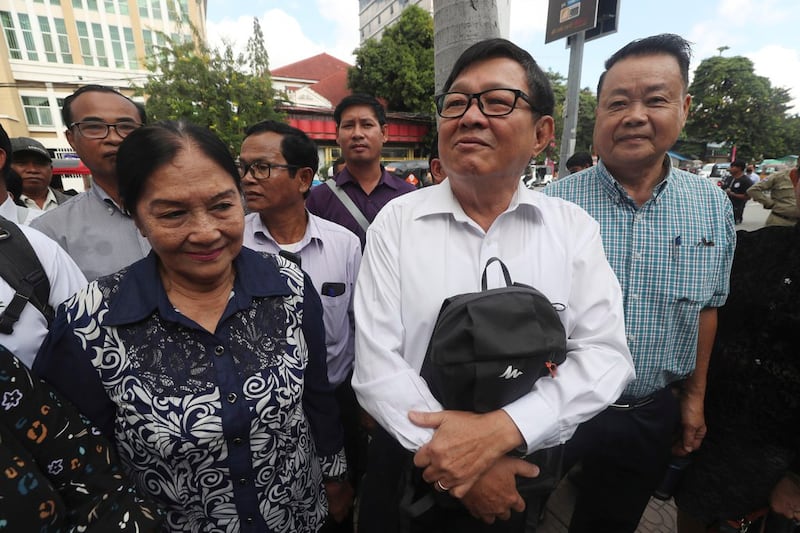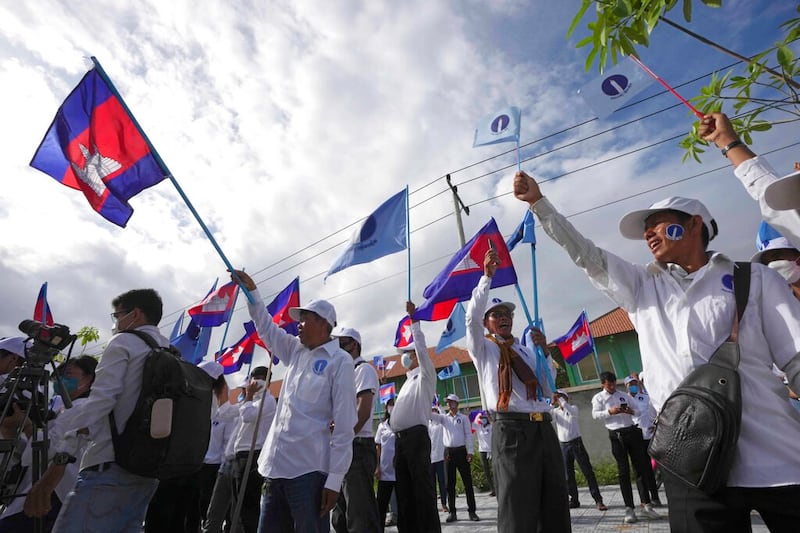Cambodia’s Constitutional Council rejected an appeal from the country’s main opposition party to be allowed to register for the upcoming parliamentary elections, a decision on Thursday that leaves the Candlelight Party without options and some observers questioning whether the July vote will have much credibility.
The National Election Committee's decision earlier this month to block the Candlelight Party from appearing on the ballot was deemed correct and based on the law, council spokesman Prum Vicheat Akara told reporters.
The ruling means Prime Minister Hun Sen’s Cambodian People’s Party won’t have any major challengers on the ballot on July 23.
The decision is a setback for democracy in Cambodia and will disenfranchise thousands of people who have recently become supporters of the Candlelight Party, according to Rong Chhun, the party’s vice president.
The French foreign ministry echoed that, saying it was “a troubling signal that undermines the democratic nature of the vote.”
"France calls on the appropriate authorities to take the necessary measures to allow the Candlelight Party to participate in this important democratic exercise," it said in a statement.
The NEC said on May 15 that it wouldn’t accept a statement from the Interior Ministry confirming the party’s registration in 1998. The committee said it required the original certificate issued by the ministry, which was lost in 2017 when the offices of a previous opposition party were raided by government agents.
Candlelight Party members have cried foul because the party was allowed to compete in last year’s local commune elections.
Public protest promised
Party officials had hoped the Constitutional Council, a judicial body that examines election disputes, might overturn the NEC’s ruling.
But the Constitutional Council – just like the NEC – was simply acting according to Hun Sen’s wishes, Finland-based political analyst Kim Sok said.

"Hun Sen can't find any solutions so he already threatened foreign diplomats," he said. "He is afraid of a demonstration after the election results. He is afraid of the Candlelight Party and other social injustice issues."
The Candlelight Party has two choices, said Australia-based social development researcher Seng Sary. One is to seek some kind of foreign intervention. Another is to persuade France-based opposition figure Sam Rainsy to return to the country for the first time since 2015.
“The Candlelight Party can call for a small protest, but if Sam Rainsy returns, there will be a bigger movement,” he said. “If Sam Rainsy is in the country, there will be a bigger force.”
Party officials will organize a public protest of the Council’s decision soon, Rong Chhun said.
However, Hun Sen recently warned against holding any protest, saying a demonstration could lead to violence and mass arrests. He has ordered prisons to prepare their cells for opposition party members.
Activists and party officials targeted
Authorities have arrested several top Candlelight Party officials in recent months. Some activists have complained of a campaign of intimidation, while others have been persuaded by the promise of a government position to switch their allegiance to the CPP.

The Candlelight Party has attracted support over the last several years with a policy platform centered around improving social welfare benefits such as offering free check-ups and treatment at public hospitals and raising the minimum monthly wage for garment workers and civil servants.
Eng Sokha, a voter in Phnom Penh, said the CPP must be afraid of competing with the opposition’s popularity. It’s well-known that Candlelight’s paperwork was valid enough for it to compete in the 2022 commune elections, she said.
“So there is no reason that the party can’t join this election. I am disappointed,” she said, adding that she might not vote.
CPP spokesman Sok Ey San dismissed any concerns about the election’s validity. If Candlelight Party supporters don’t vote, then the CPP will continue to lead the country, he said.
Translated by Samean Yun. Edited by Matt Reed and Malcolm Foster.
